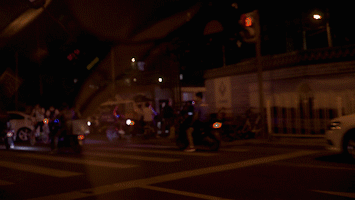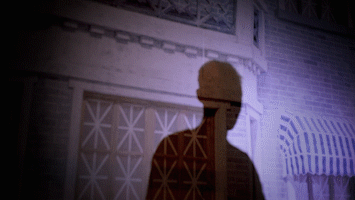The Young Comrade is a pseudo-documentary that deliriously interprets a play written by Bertolt Brecht in 1930 as a real historical account about the founding of the People’s Republic of China. The film follows a fictional attempt to search for characters in Brecht’s play in China and features the performance of four altered acts of the play. The project blurs the line between history and fiction; problematizes race, culture, and essentialism; and reflects upon growing ethnonationalist sentiments that paranoiacally conjure up fears of subversive invisible foreign agents.
Brecht’s play, titled The Measures Taken, is set in China in 1930 and follows a group of European communists who have been magically transformed into Chinese people and who have come to China to help its native communist movement during the Chinese Civil War and the Second Sino Japanese War. In order to avoid detection by anti-communist authorities, the Europeans wear racist ‘yellow-face’ masks that magically turn them into ‘Chinese’ people. With the masks on, the Europeans abandon their previous identities and become anonymous Chinese people with ‘yellow skin’, fluency in Chinese, and even dreams of having Chinese mothers. The racist gesture was meant to demonstrate how internationalist class politics could transcend ethnonationalist essentialism. The Europeans guide the protagonist of the play, a native-born Chinese communist named The Young Comrade, through a series of failed propaganda missions and labour organizing. Eventually the threat of capture by anti-communist authorities leads The Young Comrade to commit suicide following the advice of the Europeans. The suicide of The Young Comrade secures the success of the communist revolution in Brecht’s play. The suicide is presented as a metaphor for the ultimate sacrifice and discipline of the individual for the collective benefit of a political project.
Brecht’s play was meant to be performed by regular people in order to teach its actors and audience communist ideals and lessons for political action. I was fascinated by the didactic intent of the play with its intention of having a real world impact through pedagogy and how it articulated its pedagogy through a story about a fictional communist revolution in China. Exactly nineteen years after the publishing of the play there would indeed be a real communist revolution in China with the founding of the People’s Republic of China (PRC) in 1949. Taking this logic, I pushed the didacticism of the play to an extreme and transformed it into a conspiratorial account for the founding of the PRC. The synthesis of Brecht’s play and the history of the PRC creates a narrative of undetected foreign agents who alter the internal affairs of another country. This narrative is characteristic of contemporary xenophobic and ethnonationalist expressions by governments around the world who conjured up the fear of foreigners to exercise control over a population.
For myself, The Young Comrade is a personal attempt to work with and reconcile the Chinese Revolution that had transformed two generations of my family into refugees before arriving in Canada where I was born. Like many other Chinese diaspora, the Chinese Revolution set a course for mass migration to the West, and in particular to Canada. After the spectacle of Brecht’s racist gesture of yellow-face with the European characters who are transformed into Chinese people, the idea of Western-minded people with ‘Chinese’ appearances and memories struck me as being similar to the diasporic subjectivity of my Chinese-Canadian experience. On one hand, my cognition is based on Western thought, and on the other, I have cultural practices informed by Chinese culture, and I have a racialized body. This personal contemplation on diasporic subjectivity is reinserted into the film through ambiguity in its narration that at once could describe my search for Brecht’s characters or for the characteristics of the diasporic experience.
The film features the use of masks that depict European and Chinese faces. The masks of European faces were generated from photographs of people who share the same names and who are from the same cities as the European characters in Brecht’s play. As such, the masks of the European characters are based on real people who are identified as Karl Schmidt from Berlin, Anna Kjersk from Kazan, and Peter Sawitsch from Moscow. The masks of Chinese people are generated from photographs of anonymous people from Beijing.
The backdrops that appear in the four performed acts of Brecht’s play were derived from contemporary propaganda displays about the founding the PRC located in the Military Museum of the Chinese People's Revolution in Beijing.
The musical score of the film is based on the composition of the national anthem of the PRC, ‘March of the Volunteers’. The film also features a rendition of ‘Das Einheitsfrontlied’, a song written by Brecht and composed by Hanns Eisler to unite factions of the Left in Germany against facism following the coming to power of the Nazis.
The Young Comrade is a 20-minute film in 4K resolution, a suite of photographs, and the theatrical backdrops and masks. The project began in was created between 2018 and 2019, and further remastered in 2021.
My dearest thanks to: Dennis de Bel, Eshrat Erfanian, Ping Ping Fan, Yongfa Fang, Henry Heng Lu, Daan F. Oostveen, Darren Rigo, Chunling Wang, Su Wei, Winnie Wu, Tiange Yang, Tessa Zettel, Institute for Provocation (激发研究所), and the Embassy of the Austrian Government in Beijing.
Tremendous production support for The Young Comrade came from Inside-Out Art Museum (中间美术馆) in Beijing, and funding support came from the Ontario Arts Council and the Canada Council for the Arts.














